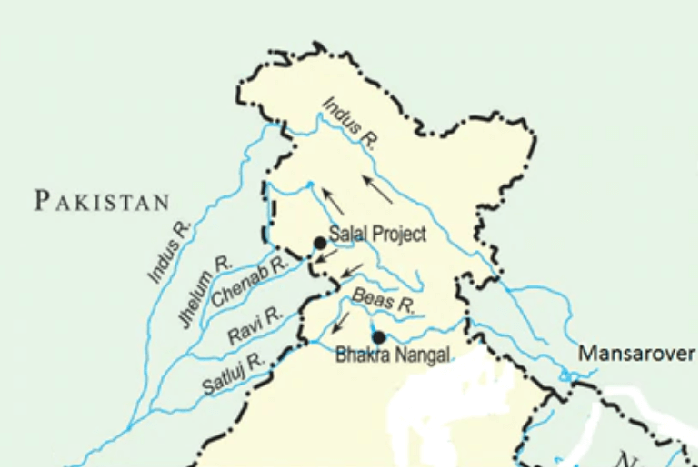Is complete independence for Kashmir really possible and feasible? Pakistan has been pushing to enforce United Nations (UN) resolutions to enable the residents of Jammu and Kashmir to exercise their rights of self-determination. But both nations, reportedly, have rejected complete independence for Kashmir? A EurAsian Times analysis.
Indus Water Treaty Needs To Be Renegotiated With India: Pakistan Kashmir PM
Independence For Kashmir – Just Not Possible
According to various experts from the Pakistan side, a majority of people in Jammu and Kashmir would want to either join Pakistan or create a separate nation that would have friendly relations with Pakistan and possibly also with India
“According to a private survey conducted on both sides of the border in Kashmir have shown that less than 10% of the Muslim population of Indian Kashmir would like to join Pakistan. Likewise, Pakistani Kashmiris do not really want to join India.
The Kashmiris in Jammu and Kashmir are not as keen to join Pakistan would prefer complete independence for Kashmir.

Pakistan also needs to realize that if complete independence to Kashmir is granted, they would develop their foreign policy on its own interests – which may not be fall-inline- with those of Pakistan’s. With India and China having more economic power than Pakistan, Islamabad may eventually lose to India, hypothetically.
Furthermore, there is one more variable to take into account and that is of the principal waterways that flow through Kashmir – India’s and Pakistan’s vital lifeline. The Indus Water Treaty between India and Pakistan, brokered by the World Bank allotted the three eastern rivers – Sutlej, Bias and Ravi – to India and the three western rivers to Pakistan.
Recently, the Indus Water Treaty has come under some strain but both the nations, despite all the differences, remain committed to solving the issue and have even allowed examiners to inspect the Chenab basin in their respective regions.
Still, if Pakistan administered Kashmir were to become a part of an independent Kashmir, then the entire watershed area of the Indus and those of the Jhelum and Chenab would lie outside of Pakistan.
At present, major parts of these areas are within PaK and GB. Pakistan is building key projects such as the Bhasha dam and the Bunji dam with the assistance of the Chinese in GB.
Thus, losing control of all rivers to a third country (Kashmir) would be even riskier than the partial control of the waterways that Pakistan currently has. Kashmir can literally choke both India and Pakistan, a situation both nations want to avoid.
Experts that EurAsian Times talked to stated that it is no longer in the interest of Pakistan to press for a UN plebiscite for the independence of Kashmir. India has always vehemently rejected complete independence to Kashmir while Pakistan has indirectly hinted that independence is not an option.
And after three wars, both India and Pakistan have realised that they cannot gain entire control of Kashmir and negotiations are the only way forward. But to the disappointment of netizens active of social sites, complete independence for Kashmir is just not possible.
More News at EurAsian Times
- Indian Military Base in Vietnam To Protect Hanoi’s Territorial Interest
- Indian Military Base in Sabang can Strangle China at the Strait of Malacca
- Saudi Money, US Weapons, Israeli Intelligence Fuelling Arab NATO – Iran
- Will Ayni Airbase in Tajikistan Become India’s 1st Overseas Military Base?
- Indonesia Opens Another Military Base at Natuna Islands To Counter Aggressive China